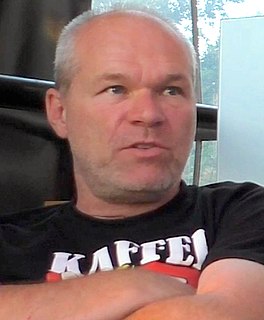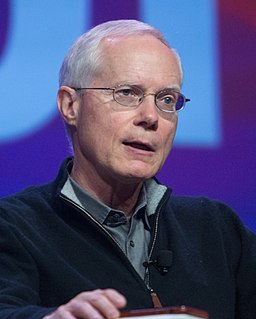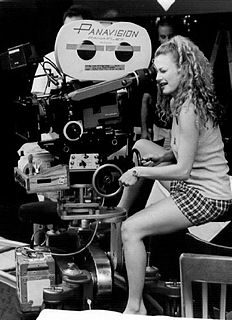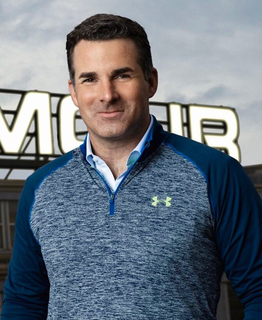A Quote by Alexander Payne
A lot of people get stuck, like, "Oh, if it's made by a studio, it can't be independent." Often they link it to the source of financing, or how it's distributed, but I don't really know how you can. A filmmaker will take his money from anywhere. It doesn't matter.
Related Quotes
Independent means one thing to me: It means that regardless of the source of financing, the director's voice is extremely present. It's such a pretentious term, but it's auteurist cinema. Director-driven, personal, auteurist... Whatever word you want. It's where you feel the director, not a machine, at work. It doesn't matter where the money comes from. It matters how much freedom the director has to work with his or her team. That's how I personally define independent movies.
You know, independent films have been institutionalized, practically. Every studio has got a boutique arthouse label. There's like, 18 different independent film-financing funds. In fact, I think the children of those films are getting made. A more interesting question is whether those films are going to get seen and appreciated.
Even after I had just done Twilight, which made $400 million at the worldwide box office, I could not get financing for three or four projects that I really loved and I thought people would love because they didn't fit some studio or investor's model of thinking, "This will definitely make money." It's a business and a film does potentially cost millions of dollars, and they have to think that they're going to get their money back somehow.
I like when I tweet about Tony Hawk. A lot of times, people think it's true; like, I've tweeted about having lunch with him a lot, and people are like, 'Oh, how was he?' or, like, 'Do you have a pic?' I don't know how to explain it. He's right at the level where people could almost believe it, but it's also a really weird pairing.
The way financing for independent movies goes is great. You get the money from the guy who's actually doing the distribution in France. You say, "Do you want a piece of this movie?" And he's got to sell this movie to get his money back. That's the brains of it; that's the genius of this financing. "You want Germany? Give us a million dollars and you've got Germany."
I like the direct contact. I want a lot of people that only know me through the mass media to learn more about what I'm doing, and to know that I'm an independent filmmaker and I'm not part of the Hollywood system. I'm coming from where they started. I'm not coming from a family with a lot of money.
Alejandro Amenábar is a very interesting filmmaker. I had really liked The Others, which was a movie he made with Nicole Kidman a few years ago. He made a very compelling case about how much he wanted me to be in this movie. Whenever a really passionate, talented filmmaker seems to have an interest in me, I take it very seriously because I like to work.
Money solves a lot of problems and when you don't have money, you've got to do all this other stuff to solve the problem. It's very hard. I would love to have not necessarily a studio because then you lose so much control but I would love to have decent independent financing where I have the freedom and I have the money to do it right, to not be asking people to work for free or to work for half the rate and not ask those favors again and again because I now owe all these people back who've helped me.
How often we say about our earthly friends, "I really would like to have a good quiet settled talk with them so that I can really get to know them." And shouldn't we feel the same about our Heavenly Friend, that we may really get to know Him? These thoughts have taught me the importance of the children of God taking time to commune daily with their Father, so that they may get to know His mind and to understand better what His will is.
People of Baltimore, if you want to simply learn a new trade, if you want to join the Foundry, it's a membership. It's like joining a gym, and you can go and meet other entrepreneurs like you. You can talk about how to get financing. You can take a class on how to sew. You can take a class and say, 'I want to be an electrician.'
How will I ever get out of this labyrinth!" In reality, "How will I ever get out of this labyrinth!" were probably not Simon Bolivar's last words (although he did, historically, say them). His last words may have been "Jose! Bring the luggage. They do not want us here." The significant source for "How will I ever get out of this labyrinth!" is also Alaska's source, Gabriel Garcia Marquez's The General in his Labyrinth.





































